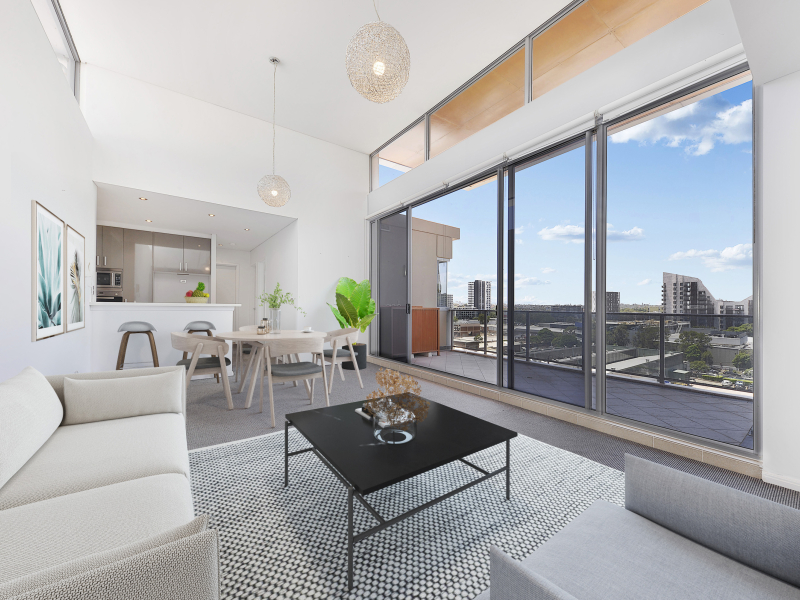A Strata Guide For Landlords
Strata title was introduced to Australia in 1961 and remains the most common way of managing apartment or townhouse ownership in Australia. Our strata guide for landlords will help you to understand what you need to know about strata schemes and how they
Here’s what landlords need to know about strata schemes, including landlord responsibilities, by-laws, levies and tenant rights.
What Is Strata?
Strata title is a means for managing the legal ownership of a portion of a building, such as individual apartments, commercial offices, townhouses and retail shops. These portions are called 'lots'. In a residential strata scheme, individual lot owners own their apartment and share ownership of common spaces in the building, such as hallways, stairs, gardens and swimming pools.
Strata Responsibilities: Owners' Corporation and Strata Committee
Every owner in a strata scheme automatically becomes part of the owners’ corporation, which is responsible for managing the scheme, including:
- Maintaining and repairing common property
- Managing the strata scheme’s finances
- Taking out insurance
- Keeping records and accounts
- Administering the scheme’s by-laws
The owners’ corporation also elects the strata committee, which manages the day-to-day running of the strata scheme on behalf of the corporation. A strata committee is comprised of owners and can have no more than nine members.
Owners’ Corporation And Strata Committee Meetings
The owners’ corporation must meet at least once a year for an Annual General Meeting (AGM) and can schedule additional meetings as needed for the running of the scheme. The strata committee can meet as often as the members like and the secretary can call a meeting at any time.
Landlords And Tenants: Who Can Attend Strata Meetings?
As the owner of the lot, the landlord can attend both owners’ corporation and strata committee meetings, but they cannot speak at a strata committee meeting unless they are a member, or a motion has been passed allowing them to contribute. Owner attendance is not required at these meetings, but taking an interest in the strata scheme is a good idea for landlords, as it means they’re more involved in the property and more knowledgeable about issues that may affect their tenants.
Tenants are also allowed to attend owners’ corporation meetings, but are not allowed to speak or vote unless officially permitted. When tenants occupy 50% or more of the lots, a tenant representative can be elected to speak at strata committee meetings, but they are not able to make or vote on motions.
Meetings are generally advertised on the notice boards in a building’s common areas (and owners are notified by post or email).
Strata Fees And Levies
All owners pay levies to cover the projected costs and expenses of the strata scheme, usually on a quarterly basis. Three types of contributions are used to cover building maintenance and the running of the strata scheme. These are:
- Administrative Fund Levies: covers day-to-day expenses such as maintaining common property, providing for insurance and paying for recurrent costs like lawn mowing, electricity and water.
- Capital Works Fund Levies: previously known as 'sinking fund' levies, these pay for large upgrades or repairs when they arise, such as painting or replacing fixtures in common property areas.
- Special Levies: may be introduced on an ad hoc basis to cover unexpected major work or important upgrades that haven’t been factored in to the other levies.
Repairs In A Rented Property In A Strata Scheme
The owners’ corporation is responsible for the maintenance of all common property areas, but landlords are still responsible for repairs required within the apartments they own.
For common property area issues, the tenant can raise a request for repairs in writing directly with the owners’ corporation. The tenant should also send this letter to the landlord or the property manager. The landlord is responsible for ensuring these repairs are completed, as part of their obligations to their tenants.
And the definition of common property can vary - for instance, windows are usually counted as common property so glass breakages or window lock repairs may come under strata.
By-Laws In Strata Schemes
Strata schemes each have their own by-laws to govern behaviour of residents and determine how common property is used. These by-laws can include rules about pets, renovations, parking and noise levels, but they can’t restrict types of tenancy, the presence of children or keeping assistance animals. Each scheme’s set of by-laws is very different, so it’s important for landlords and tenants to understand the specific rules for their property. Find out more about by-laws here.
Like To Learn More?
For more information about your rights and responsibilities as a landlord in a strata scheme, get in touch with our team of specialists today or visit the NSW Fair Trading website.
